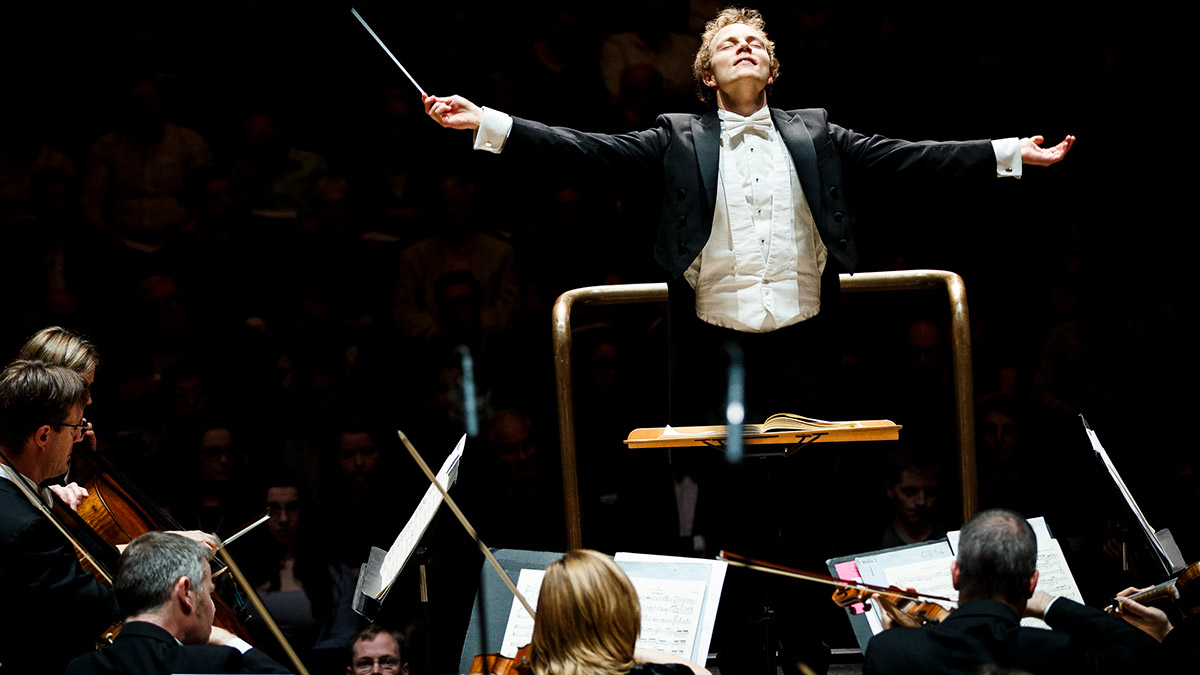Songtradr looks to orchestrate M&A after Jaxsta deal

Pic: Getty.
A mostly Australian-owned, Los Angeles-based music licensing platform whose deal with Jaxsta (ASX:JXT) sent shares in the music database company soaring yesterday isn’t done making headlines.
Songtradr is hungry for acquisitions after buying tech-enabled music service Big Sync Music last year and raising $US30 million ($A41m) in a series C funding round last month that valued the company at $US165 million ($227 million).
Most of the money came from Australian investors, chief executive Paul Wiltshire told Stockhead. Tech entrepreneur and WiseTech Global (ASX:WTC) founder Richard White invested in both the series A and B rounds, Wilshire said.
“We are predominantly Australian-owned — depending on whether I wear the Australian flag or an American one,” said Wiltshire, a dual citizen who was born in New York state but grew up in Ballarat, Victoria.
Wiltshire said he came up with the idea for the company during his time as a music producer and songwriter for the likes of Guy Sebastian, the Backstreet Boys and Australian Idol.
Music licensing has been a “slow, manual process” especially for Australian artists who had to travel to Los Angeles, the epicenter of the music world.
“I knew the problem needed to be solved, and I felt like it was something that I had to do, rather than I wanted to do,” Wiltshire said.
Since its launch in 2016, Songtradr has grown to represent over half a million artists and rightsholders, acting as a digital business-to-business marketplace for brands that want to license music for movies, videogames, advertisements, YouTube videos, and more.
It also distributes to Spotify and Apple Music – and is able to take insights it learns from those streaming services by mood, genre, vocal type and more.
The platform includes A-list musical names — although Wiltshire didn’t want to name them without permission — and has been used by blue-chip brands such as Volkswagen, Toyota, Unilever, Microsoft and Netflix.
What’s next for Songtradr?
Wiltshire said the company is looking to grow by acquiring music licensing companies, which he described as a “fragmented resource” that Songtradr could add value to by adding them to its platform.
Last year Songtradr bought Big Sync Media, the largest buyer of music for brands.
For now the company, which has over 80 employees in the US, Europe and Asia, is focused on growth and has no immediate plans for an IPO.
While the company isn’t committing that it will choose to list on the ASX just yet, that would make a certain amount of sense considering how many of its investors are Australian.
The deal with Jaxsta
Under the integration with Jaxsta, Songtradr will invest $1.42 million in the company and integrate its database into Songtradr’s platform.
“It’s like an IMBD for music credits,” Wiltshire said of Jaxsta. “It’s a really compelling platform, what they’ve achieved from a data analytics perspective. It’s like all of the research is done automatically.”
Jaxsta allows musicians to claim their profiles on the site, so they can be sure they are getting paid their proper royalties.
Musicians are owed what is called “neighbouring rights” every time their music is played commercially, a market that is worth an estimated $US2.6 billion. A sizeable amount of that is never collected by the rightsholders.
Jaxsta chief executive Jacqui Louez Schoorl said that a chance meeting at the South by Southwest music festival in Austin, Texas, several years ago brought them together.
As Australian CEOs of music technology companies, they had a lot in common.
Schoorl was running out of superlatives to describe her enthusiasm with the deal when she talked to Stockhead yesterday.
“It’s certainly very very exciting for us,” she said. (And for Jaxsta shareholders, we should add, who saw the value of their holdings increase 269 per cent yesterday).
“Their CEO is certainly an industry leader and very very well respected in the industry.”
Both Schoorl and Wiltshire said it was also gratifying to help artists hit by pandemic get another revenue stream.
“It’s a tough time our there for a lot of these musicians right now, who have lived off live performances,” Wiltshire said.
UNLOCK INSIGHTS
Discover the untold stories of emerging ASX stocks.
Daily news and expert analysis, it's free to subscribe.
By proceeding, you confirm you understand that we handle personal information in accordance with our Privacy Policy.








